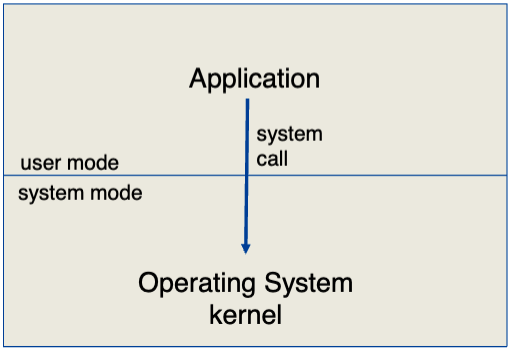An operating system (OS) is a special program that acts as an interface between the computer user and the computer hardware, is a program that with privileged (can access and control all of the hardware) and provides all the basic services such as:
- sophisticated Graphical User Interface (GUI)
- other I/O devices such as mouse
- a file system
- network connections
- concurrency (running more than one program at a time)
- security
OS is also responsible for converting high-level programs and instructions into low-level that is recognisable by the hardwares.
User and system mode of operation
To enforce the distinction between the OS and the user programs, the CPU usually has at least two modes of operations: system and user.
To switch from user mode to system mode (e.g. when an application program requests a service such as reading a file) and special CPU instruction is executed - system call. This will cause execution to continue in the system mode.
 Unix has a number of system calls that manage processes. Remember that a system call is like a function call to the operating system, except the privilege level switches from the user to the superuser and execution continues in the operating system kernel code.
(More about this topic on Process management and System calls)
Unix has a number of system calls that manage processes. Remember that a system call is like a function call to the operating system, except the privilege level switches from the user to the superuser and execution continues in the operating system kernel code.
(More about this topic on Process management and System calls)
Categories of today’s OS
- Microsoft Windows
- Unix Systems
- Solaris
Computer data
Command Line Interpreter
Back to parent page: index